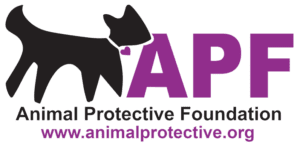Statement regarding Pinky/Snuggles March 22, 2017
My name is Dr. Jessica Durham and I was Pinky’s (later found to be named Snuggles) veterinarian at the Animal Protective Foundation. I have been practicing veterinary medicine for 12 years and have been caring for homeless pets and spay/neuter surgical patients at the APF for nearly 4 years. I serve as President-Elect of the Capital District Veterinary Medical Society and Chair of the Society’s Ethics Committee. I also have experience in private veterinary practice.
The death of an animal is an emotional time regardless of the circumstances. I became a veterinarian because I love animals and wanted to devote my life to helping them. In the vast majority of cases, through my expertise and the capabilities of modern medicine, I am able to help cure sick animals or, at the very least, help them live a comfortable and long life. There are times, however, when given all the circumstances and the animal’s condition, including age, severity of the illness, and short- and long-term prognosis, that humane euthanasia is the best and most responsible course of action. That was my professional recommendation for Snuggles.
Snuggles was brought to the shelter in poor health by a good citizen. Under New York State law, this individual is considered to be the “owner” of the cat unless the actual owner can be identified. As is customary at APF, Snuggles was checked for an identifying microchip, and unfortunately there was none. We also reviewed lost pet records filed by owners at the shelter and, unfortunately, found there was no report for Snuggles.
Snuggles was cared for at the APF for 11 days. Following her death, APF was contacted by Snuggles’ actual owner. Our Executive Director explained the unfortunate circumstances and expressed our sincerest sympathy. We have continued our outreach to the family by offering complimentary pet bereavement counseling services and free microchipping for remaining family pets to ensure they can be identified in the event of a similar situation.
Careful attention was given to Snuggles’ care throughout her stay. Snuggles had poor body condition, thin musculature, periodontal disease, a growth on her gums and a dead canine tooth with a root abscess. A subsequent blood test also confirmed hyperthyroidism. Because of her condition, Snuggles had not been made available for adoption or other placement.
I understand that video footage of Pinky at the shelter appears to show her in good health. Looks are deceiving. Cats with hyperthyroidism often have a ravenous appetite and are quite active, but in reality face serious ongoing health challenges. Given these challenges, along with Pinky’s age, the need for dental surgery, a growth of undetermined origin, the need for extensive and necessary ongoing medication and testing, and her expected life span, my professional conclusion was to end her life peacefully.
Unlike some shelters, APF has an open admission policy. No animal is turned away, regardless of breed, age, physical or mental condition. Nearly 5,000 animals come through our shelter and clinic doors each year. We strive to do the greatest good for the greatest number. My colleagues work diligently to reunite lost pets with their owners; to address and correct behavioral issues; and to find responsible, loving forever homes for those abandoned. My veterinary team and I ensure that no animal unduly suffers from illness or injury.
We make difficult decisions every day, decisions that others shy away from or leave to others. Despite the hard choices, most days we have many wonderful outcomes. The majority of the homeless pets we care for have their conditions improved and are afforded long, happy and healthy lives with new loving families. I know firsthand the important work we do every day, and wanted to be sure you understood my perspective. Thank you for taking the time to read this.



